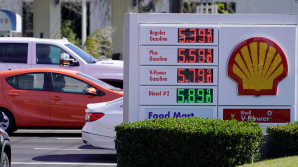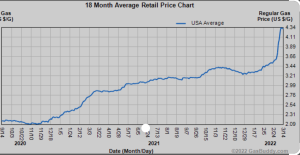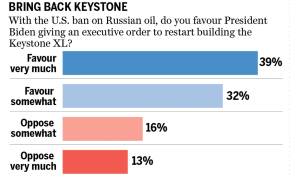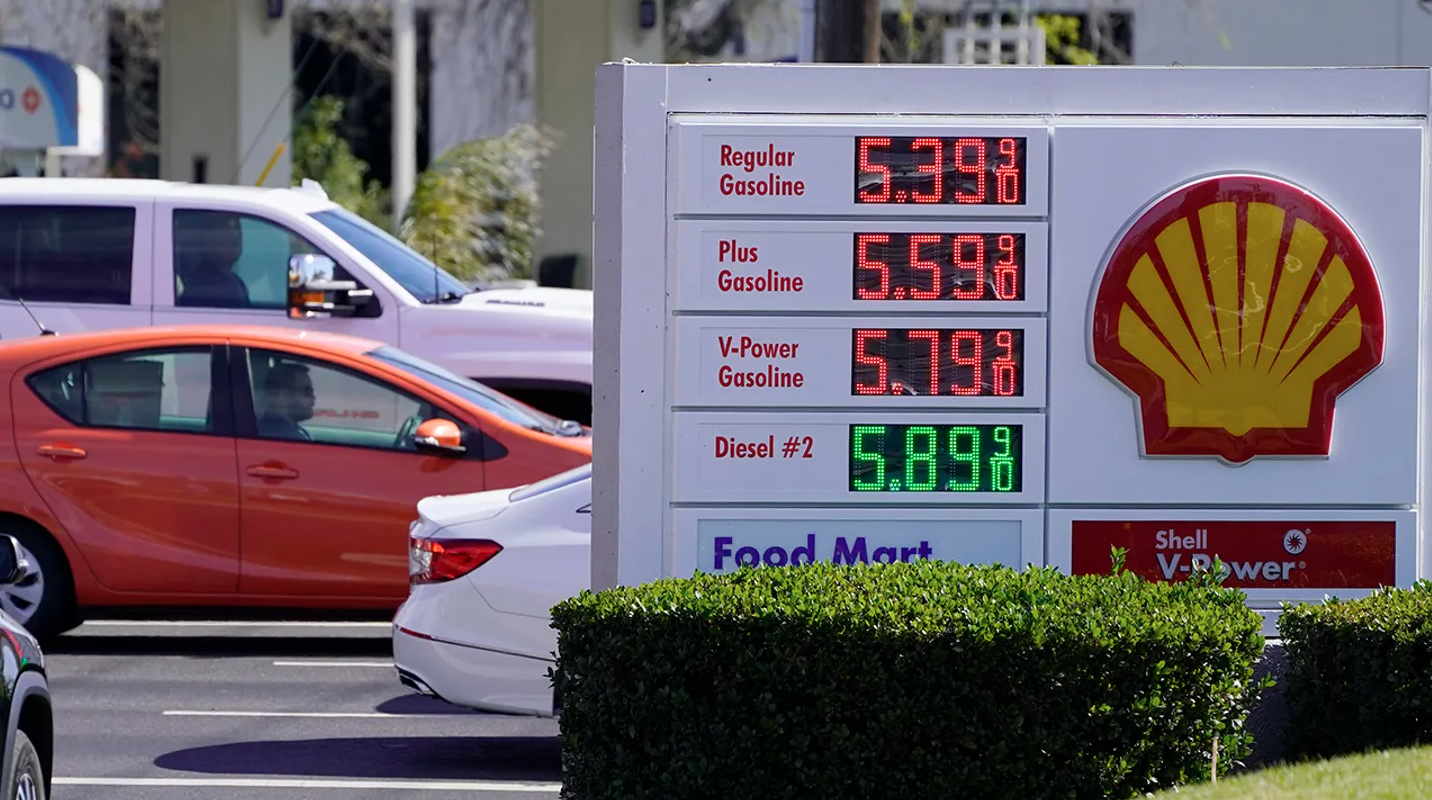This past month gas prices soared to an all time high of $4.32 per gallon in the United States. This price range is a whopping two dollars more than it was this time last year.
The high price change comes on the heels of President Biden implementing a full scale ban on Russian oil due to their invasion of neighboring democratic nation Ukraine.

Despite higher gas fees, Biden has received unprecedented bipartisan support for his ban on capitol hill, as both parties have rallied behind his stance on Russian oil.
Both Republicans and Democrats have been vocally supportive of the President, as cutting off the Russian oil supply is a major blow to the sustainability of the Russian economy.
Biden has not only seen support from Washington, but from the American people as well.
A recent Ipos poll concluded that 77 percent of Americans would support sanctions of Russian oil and gas.
It appears that the American people are giving Biden support in the principal of these sanctions, however, the President is trending down in terms of the economic impact of the sanctions.
An additional IPSOS poll indicates that 58 percent of Americans disapprove of Biden’s handling of the economic recovery post- pandemic and 70 percent disapprove of his handling of Inflation.
These rising prices have taken it’s toll on the lives of Cabrini students as well, as commuter students in particular are seeing their wallets drained on a daily basis.
Cabrini sophmore, Bri Walsh, is a prime example of this as her everyday commute to campus is putting a strain on her financially and has made her consciousness when it comes to managing money.
“The money that I would normally use for spending has gone directly into my gas tank,” Walsh said.
This has led to a massive change in Walsh’s lifestyle choices, as normally this money would be put towards things such as hanging out with friends, shopping and buying food.
Walsh has been subjected to keeping mental note of how far she has to drive on an everyday basis, and use cost and effect type thinking in terms of money management.

Cabrini senior, David Pacholick falls into that category, as his daily life has changed drastically in the past few months due to the steady climb in gas prices.
“I doordash 12 hours a week for the sole purpose of paying for gas money,” Pacholick said, as this is just one of the three jobs he is juggling at the moment.
In addition to DoorDashing, Pacholick works weekly in the Cabrini communication department’s equipment room and has begun working a job in his desired professional field in lighting and sound.
Pacholick’s daily commute involves going from his on-campus apartment to the location of his job in Kensington. This is no short drive, as it is a 34-minute, 20-mile drive that he entails on a daily basis.
In what Pacholick refers to as “a waste of time” he is forced to resort to door-dashing three days a week, four hours at a time. On average, he brings home $155 per week DoorDashing.
Pacholick recognizes that DoorDashing is the only way to remain financially stable during these difficult times and views the 12 hours he spends a week delivering food as a necessary step required to work for what he calls his “dream job” in lighting and sound.
However, that does not mean he is not frustrated by the current gas prices.
“What this all boils down to is our country not being able to produce enough of our own gas,” Pacholick said. “If we were capable of producing our own oil and gas, and not being forced to outsource the services of other countries, we would never have been in this position in the first place.”
Pacholick views political maneuvering as one of the main reasons that the United States is in this position and is critical of Biden’s shutdown of the Keystone XL pipeline.

Due to environmental concerns, President Biden revoked the Keystone XL pipeline’s operational permit during the beginning of 2021. This has angered the American public, as 71 percent of Americans think that President Biden should give an executive order to restart the transportation of oil and gas on the Keystone XL pipeline.
Whatever the solution may be, the effects of the gas crisis are palpable in communities throughout the nation.
Until there is a solution, the wallets of the American people will continue to bleed daily at the gas pumps.





